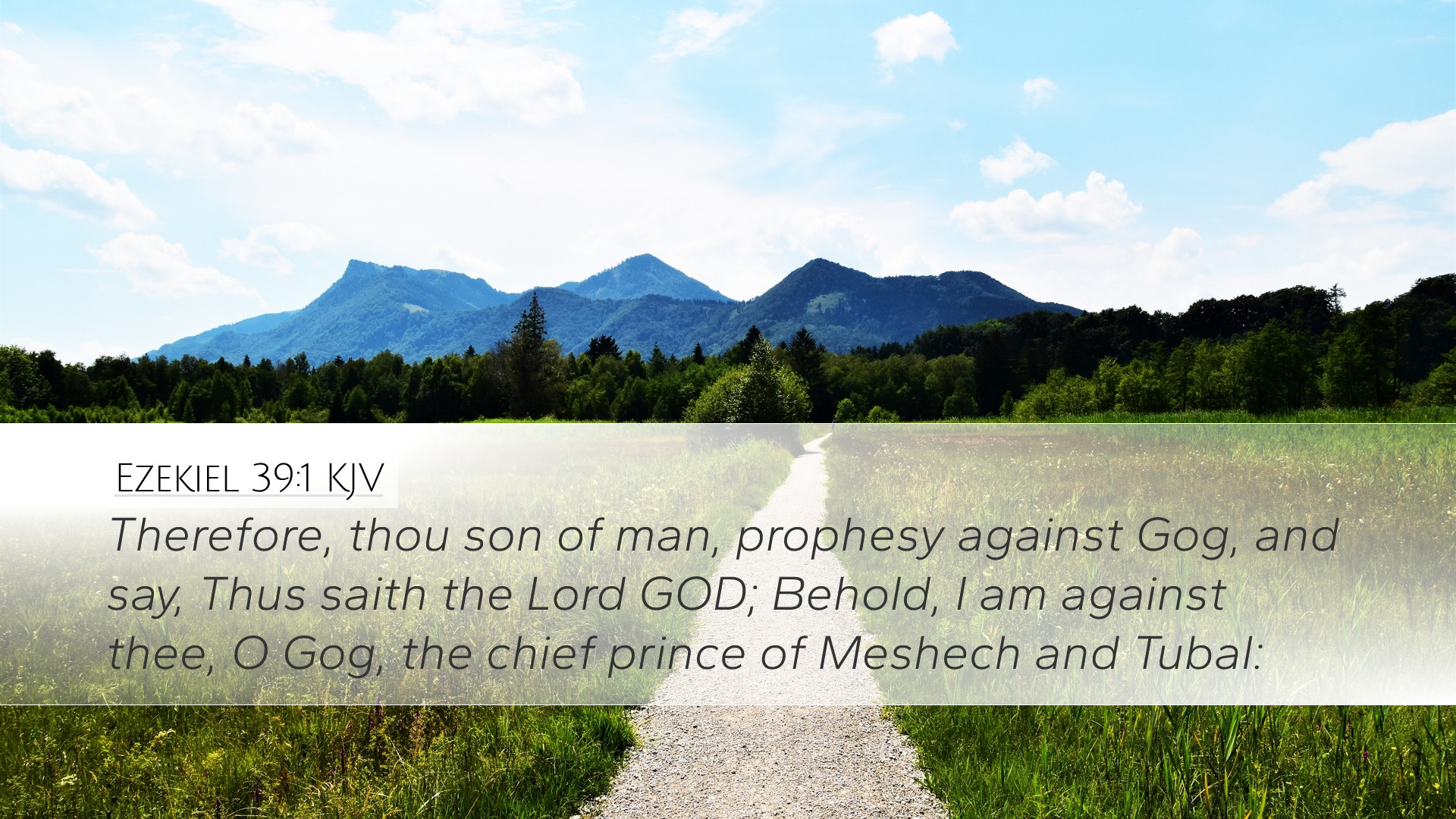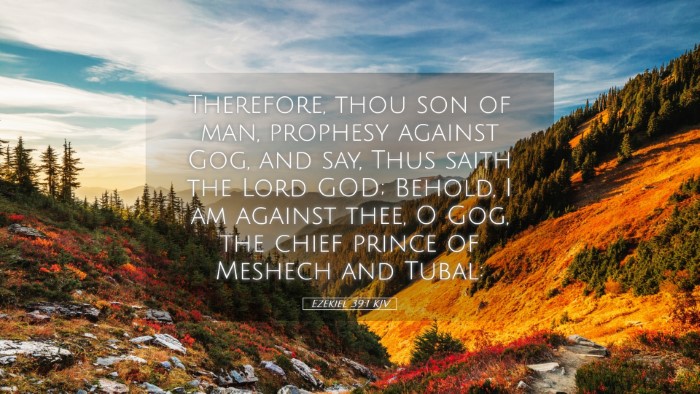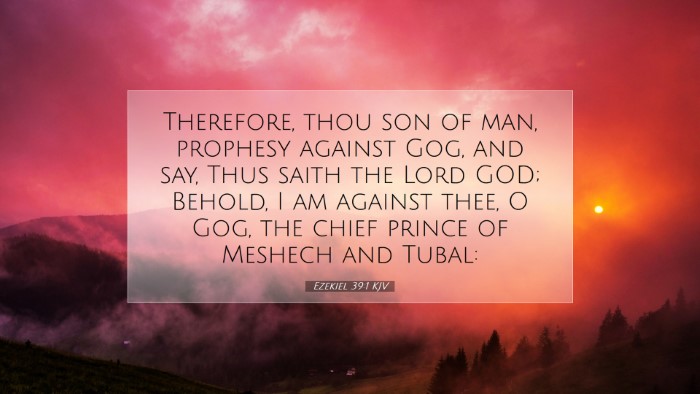Ezekiel 39:1 - Commentary Summary
Bible Verse: "And thou, son of man, prophesy against Gog, and say, Thus saith the Lord God; Behold, I am against thee, O Gog, the chief prince of Meshech and Tubal."
Introduction
The prophecy against Gog found in Ezekiel chapters 38 and 39 is a crucial element in understanding the eschatological themes present in the Scriptures. This passage reflects God's judgment and the ultimate victory of His people over their formidable adversaries. The identity of Gog and the regions mentioned are debated but hold significant implications within Biblical prophecy.
Contextual Background
This passage takes place during a time of great tension for Israel, wherein God’s people faced oppression and exile. The prophet Ezekiel, speaking from Babylon, addresses the future restoration of Israel and the assurance of God's sovereignty over the nations. In this context, Gog represents the arch-enemy, perhaps symbolizing all opposition to God’s purpose.
Analysis of Key Terms
-
Son of Man: This phrase highlights Ezekiel's humanity and role as a mediator of God's message, indicating his prophetic calling.
-
Prophesy Against: This command indicates a direct confrontation with Gog. The prophetic nature of this instruction serves both as a warning and a declaration of impending divine judgment.
-
Gog: Various interpretations exist regarding Gog's identity, ranging from a literal leader of nations to a symbolic figure representing evil or chaos opposing God’s people.
-
Chief Prince: This designation implies authority and power. Gog’s status as chief signifies a significant threat to God's people and His plans.
-
Meshech and Tubal: These ancient names have been associated with regions in the vicinity of modern-day Turkey, which places the conflict in a historical and geographical context relevant to the original audience.
Theological Implications
From various biblical commentaries, several important theological themes emerge from Ezekiel 39:1:
-
God's Sovereignty: This verse emphasizes that God is actively opposing Gog, representing His ultimate authority over not only Israel but all nations. Matthew Henry notes that God's opposition to Gog serves to reassure the faithful that God governs history and destiny.
-
The Certainty of Judgment: Albert Barnes elaborates on the certainty inherent in God's declaration against Gog. The prophetic utterance indicates that the divine will inevitably come to pass, instilling hope among believers.
-
The Role of Prophecy: Adam Clarke highlights the importance of the prophetic voice in challenging evil. The act of prophecy is not merely foretelling but also a declaration of God’s justice and righteousness.
Exegetical Insights
Examining the text through various lenses, we draw several critical insights:
-
Evil's Defeat is Foretold: The confrontation with Gog signifies that even the mightiest forces of evil cannot withstand God's righteous plan. This assurance is vital for those facing oppression.
-
Gog as a Symbol: The character of Gog may also symbolize all earthly powers that rise against God's kingdom. This allegorical interpretation allows us to understand the text as relevant for all generations facing hostility for their faith.
-
Invocation of God's Name: The phrase "Thus saith the Lord God" serves to anchor the prophecy in divine authority, compelling believers to recognize their strength in God's promises.
Practical Applications
In light of the rich theological and exegetical insights from this passage, several practical applications for modern believers can be drawn:
-
Encouragement in Persecution: Believers can find solace in the knowledge that God opposes the adversaries of the faith. Just as He declared His intent against Gog, He assures His people of victory against all forms of evil.
-
Call to Prophetic Witness: This passage encourages Christians to embrace their role as proclaimers of God's truth, challenging injustices and calling for righteousness in society.
-
Hope for Restoration: The broader narrative in Ezekiel points to restoration. Believers are reminded that despite present challenges, God's plan is to bring about healing and renewal.
Conclusion
Ezekiel 39:1 serves as a profound reminder of God's sovereignty and the assurance of His judgment against formidable powers aligned against His purposes. Through careful study and reflection on this verse, Christians can discern God's faithfulness and their responsibility in the unfolding narrative of redemption and justice.


